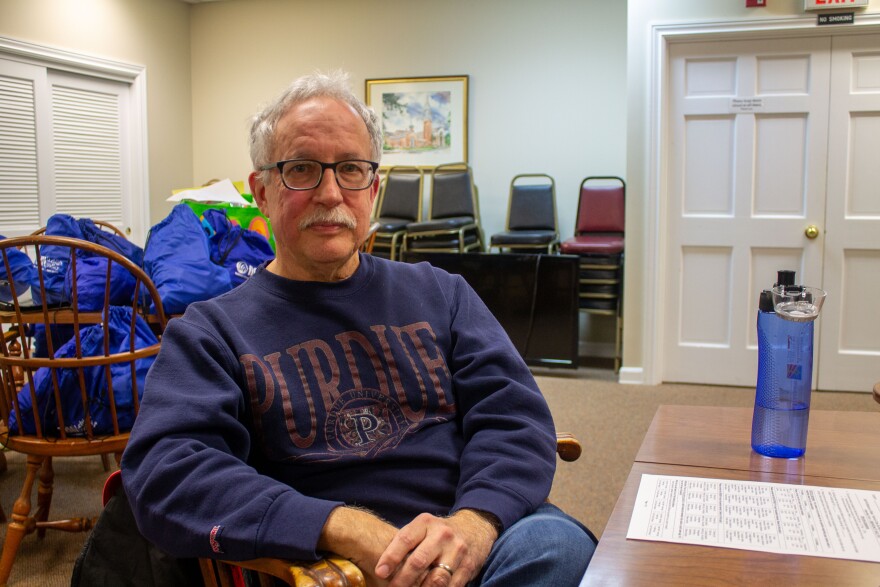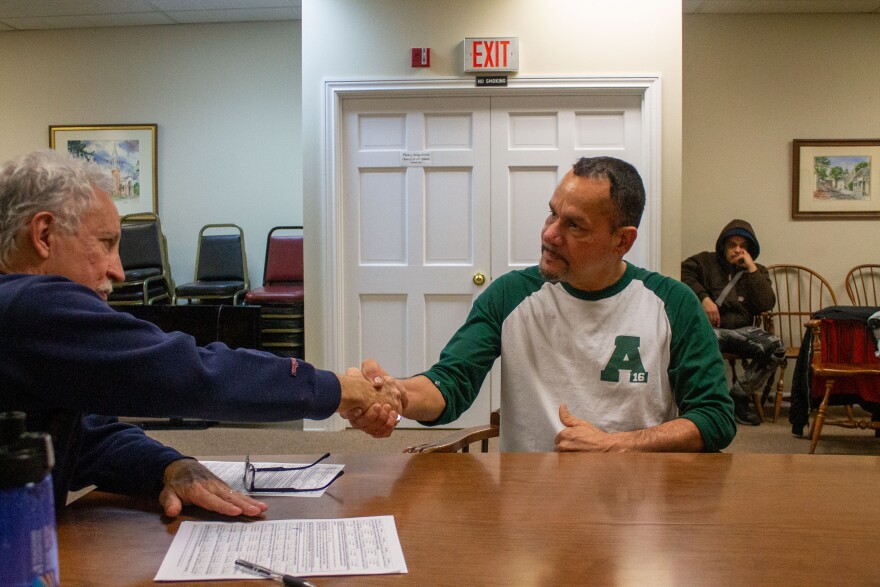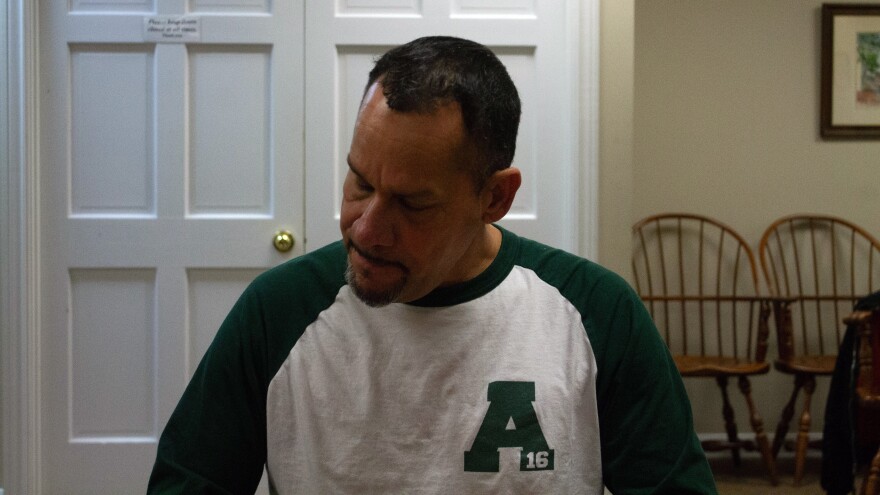BETHLEHEM, Pa. — At the emergency shelter in Christ Church, volunteers sat in near-silence waiting for dozens of homeless people to come in so the volunteers could help them fill out forms.
The paperwork is for the annual point-in-time count, a government initiative to create an educated guess of just how many people in the country have no choice but to live on the streets.
Some of the people who have filled out the forms throughout the years: a 92-year-old man who slept in a tent until the end of his life, a nurse who was employed full-time and lots of military veterans who served in war, then never got back on their feet.
This year, the point-in-time count is expected to reveal an unprecedented number of people living unhoused in the Lehigh Valley, according to officials at the shelter.
Final results will be released Monday, but indicators such as the shelter being full on most days — for the first time ever — and unprecedented demand for its food bank services, are strong hints for those at Christ Church.
During the point-in-time count, the job of the shelter is technically just to tick boxes on paperwork.
But volunteers see another opportunity: listening.
'I haven't got a clue'
Jeff Carlton is well versed in this. He is the chairman of the board at the shelter, and serves as a volunteer on nights such as this.

"We had a lady here once, she was staying at the shelter," Carlton said. "And she said, 'It's not the cold or anything else that kills you, it's the loneliness.'"
"So giving them five minutes just to talk about whatever they want to talk about, and treating them with the same respect I would if I'm standing on the street corner, and somebody else who's there wants to chat — that's it."
"There but for the grace of God go I?' Bulls—t."Christ Church Emergency Shelter Board Chairman Jeff Carlton
Carlton said he has had training in "how to do it, and more importantly, how not to do it," as he put it.
He said it's important to be present, listen attentively, empathize — but not to prioritize himself in the conversation, not to one-up and definitely not to claim he understands their pain.

"There's no way I can say, 'I know exactly how you feel,'" Carlton said. "I haven't got a clue how they feel. I have absolutely no idea. 'There but for the grace of God go I?' Bulls—t.
"I've got a huge support network, I've got medical insurance, I've got all kinds of advantages that unfortunately, they don't have for whatever reason."
Elvis
After waiting politely in line, a well-put-together man in his mid-40s walked up to the table manned by Carlton.
"My name is Elvis," the man said with a smile. "No Presley, but I'm Elvis."
That got a big laugh in the room.
He said it's his favorite joke.
Carlton quipped, "You look much better than the last time I saw you on TV."
"I don't want to make it about me."Elvis Espinar, who identified himself as unhoused
The man's full name is Elvis Espinar, and he said he has been homeless for about five years.
He said it's a first for him: He's always held down a job and lived a stable life, until he developed an injury, and didn't have insurance or enough money to cover the hospital bills.
Espinar said the medical bills kept piling up and, not being able to work because of his injury made it nearly impossible to keep his head above water.
He said his situation spiraled, and now he spends his winters living in a tent.
Despite his situation, he was outwardly upbeat, optimistic and grateful.
"I'm lucky, in a way, I'm alive," he said. "I'm a son of God."
Not wanting to appear selfish, Espinar backpedaled: "It's not just me — you are son of God, and you are," he said, and kept pointing at people in the room, as if making sure there was enough to go around.
"I don't want to make it about me."
B.A.B.
About a half dozen people sat down at Carlton's table after Espinar, including a woman who asked to be identified only by her initials, B.A.B.
She also asked to not be photographed or for too much identifying information to be used.
"A lot of people know me," she said. "But they don't know my private life."
"Yeah, I had a stroke — and it affected my fine motor skills. But nothing restricts me from anything."Unhoused woman who identified herself as "B.A.B."
By her appearance, those who saw her likely would not be able to guess she is experiencing homelessness. Wearing a baby blue wool hat with a matching scarf and mittens and a dressy jacket, "B.A.B." said she is in her late 50s, is educated and trained as a nurse, and has done that job.
Asked when she last slept indoors, "B.A.B." replied, "A year ago, when I got my car." She said she sometimes is able to rent a room, and sleeps in her car between periods of having a home.
As with Espinar's path to homelessness, "B.A.B." said it all started with a medical issue.
"Yeah, I had a stroke — and it affected my fine motor skills," she said. "But nothing restricts me from anything."
Despite the positive attitude, "B.A.B." said her medical issues get in the way every time she tries to go back to work.
She said she's in a repeating cycle in which she starts feeling well enough to go back, gets back on the hospital floor for a shift, and ends up causing herself more harm than good.
She said her social assistance benefits do not cover enough for rent, so she ends up back in the streets every time.
The 2023 Point-in-Time Count revealed that approximately 686 people in 465 households were unsheltered in Lehigh and Northampton counties, according to the Lehigh Valley Regional Homeless Advisory Board. That marked a 6.6% increase since before the COVID-19 pandemic, but a decrease from the previous year.


